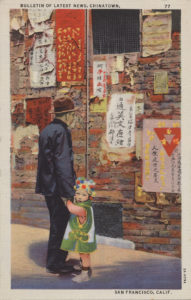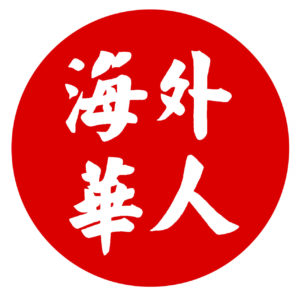
To trace the story of Asian American studies, you must go back to the 1960s. And any story about the genesis of the discipline would be incomplete without Ling-Chi Wang.
He was there from the beginning: In the late ’60s, amid student protests demanding diverse representation in academic programs, Wang helped establish the disciplines of Asian studies and ethnic studies at UC Berkeley.
Now a professor emeritus at UC Berkeley, Wang will deliver the keynote address Thursday at the Chinese Overseas Symposium, a first-of-its kind event focusing on UC Berkeley-oriented Chinese overseas scholarship and curatorship for an international audience.
‘Transforming American history’
With three other graduate students, Wang taught the first course in Asian American studies at UC Berkeley, in the winter quarter of 1969. Later that same year — and at the same time — the very first ethnic studies programs were born at UC Berkeley and San Francisco State. They were unlike anything the country had seen.
“Berkeley can justifiably be proud of its role in transforming American history and identity and making interdisciplinary American studies inclusive,” said Wang, who retired in 2006.
In just two years, in 2019, Berkeley’s Asian American studies program (now called Asian American and Asian diaspora studies) is marking its 50th anniversary — a momentous occasion for which Wang is involved with fundraising efforts.
“We have a proud legacy upon which we can build our future and engage the nation in the study of race and gender and in global diaspora studies,” he said. “We need to invest and change our priorities if we are to lead.”
‘Best of our highlights’
The event Thursday aims to honor that legacy — and to “sow the seeds of good will,” according to symposium co-chair Virginia Shih — while showcasing the Library’s world-class collections. The free, daylong event is a prelude of sorts to a conference Friday in San Francisco, called “This Land Is Our Land: Chinese Pluralities Through the Americas.”
And it’s a true collaboration, featuring an interdisciplinary group of speakers that includes librarians and professors alike.
“One of the exciting things about Chinese overseas is it spans the whole world,” said symposium co-chair Sine Hwang Jensen, who serves as Asian American studies and comparative ethnic studies librarian at UC Berkeley. “That’s why the perspectives that everyone brings — and we bring — contribute something unique to the topic.”

Harvey Dong, for example — one of the featured speakers — participated in the student strike in 1969 that led to the creation of ethnic studies and Asian American studies and will bring this perspective to the symposium in his talk about how the rediscovery of early Chinese American history has influenced generations of students. And Professor Emeritus Wang will talk about the past, present, and future of Chinese American studies at UC Berkeley and beyond.
In the afternoon, visitors will get a taste of what the UC Berkeley Library has to offer. The tours stop at four libraries — The Bancroft Library, the C. V. Starr East Asian Library, the South/Southeast Asia Library, and the Ethnic Studies Library, which boasts one of the largest Chinese American collections in North America. Tours will highlight the Library’s wide range of materials, including photographs, manuscripts, prints, and paintings documenting the experience of the Chinese in California and the American West, as well as materials from the vast collection of film critic and historian Paul Fonoroff — which is the largest Chinese film studies collection in North America — among other treasures.
“(The event) gives the people the best of our highlights — in one day,” said Shih, librarian for the Southeast Asia collections.
A relevant occasion
The symposium’s organizers hope that showcasing the Library’s resources will encourage scholars to take advantage of the materials — and perhaps even inspire scholarly collaborations.
But it comes a time when the country is in a state of deep division, with questions of identity and inclusion rising to prominence.
“Where we’re at politically, (the event) is more essential,” said symposium co-chair Jensen. “We’re having a national conversation about belonging.”
“It’s very relevant today,” she said.
Admission is free, and registration is closed, but those who show up will not be turned away, as space allows.
For details, including a schedule, go to the Chinese Overseas Symposium’s website.